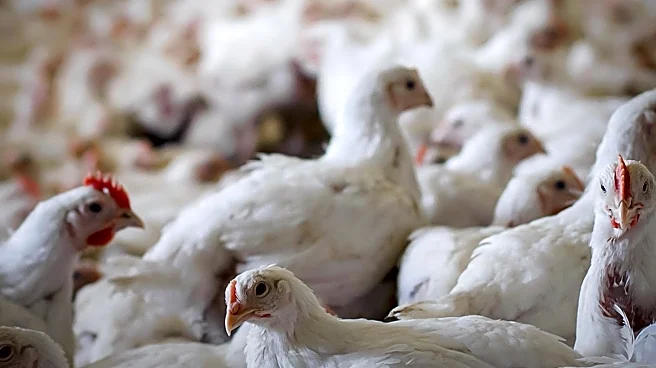What is the story about?
What's Happening?
A poultry farm in Cheshire is set to cull more than 10,000 birds after a highly pathogenic avian flu outbreak was detected. The outbreak was identified in a commercial flock near Wybunbury, prompting the government to establish a 3km protection zone and a 10km surveillance zone around the site. The Department for Environment, Food & Rural Affairs (Defra) and the Animal and Plant Health Agency have confirmed the presence of the disease, and all poultry on the premises will be humanely culled to prevent further spread.
Why It's Important?
The outbreak of avian flu in Cheshire highlights the ongoing challenges faced by the poultry industry in managing disease outbreaks. The culling of a large number of birds can have significant economic impacts on the affected farm and the broader industry. It underscores the importance of biosecurity measures and surveillance to prevent the spread of infectious diseases. The situation may lead to increased scrutiny of poultry farming practices and the implementation of stricter regulations to safeguard public health and animal welfare.
What's Next?
Authorities will continue to monitor the situation closely, enforcing the protection and surveillance zones to prevent further transmission of the virus. The poultry industry may face increased pressure to enhance biosecurity measures and improve disease prevention strategies. The outbreak could lead to discussions on the need for more robust policies and practices to protect both animal and human health.
Beyond the Headlines
The bird flu outbreak raises questions about the sustainability and resilience of intensive poultry farming systems. It may prompt discussions on alternative farming practices and the role of government in supporting industry transitions to more sustainable models. The situation could also influence consumer perceptions and demand for poultry products.















